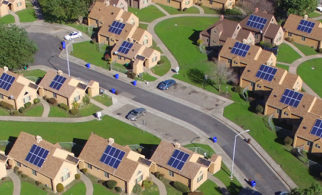Financing
In the past decade, adoption of solar by residential customers has grown tremendously, fueled in part by innovations in financial offerings. The advent of financing mechanisms like leasing or power purchase agreement (PPA) relationships allow homeowners to install solar with little or no upfront costs and accounted for a large share of residential solar growth in that timeframe. Consumer loans are another increasingly popular way to finance residential solar. However, the ability to participate in these models generally requires a credit score or debt-to-income ratio minimum that can be a barrier to low-income households who generally have lower credit scores. Low-income families are also often unable to take advantage of the largest public incentive to making solar affordable, the federal investment tax credit (ITC).
The policy tools listed here provide options to expand access to financial solutions for low-income families to access solar. For additional reading, visit Vote Solar’s Inclusive Solar Finance Framework, a report that evaluates barriers to financial products that can support solar adoption and identifies potential solutions.
